Prediction Markets
The landscape of prediction markets in the US is abuzz with uncertainty, as industry giants and newcomers alike weigh their options for entering the lucrative yet legally precarious space. FanDuel, DraftKings, and BetMGM, stalwarts of the sportsbook world, are cautiously monitoring the situation, while Coinbase, a cryptocurrency exchange platform, is boldly diving headfirst into the fray. This dichotomy in approaches has sparked intense debate among industry insiders and observers, with some questioning the wisdom of Coinbase’s rash decision and others praising its foresight.
Sportsbooks Exercise Caution
In recent earnings calls, the CEOs of Flutter, FanDuel’s parent company, and DraftKings expressed interest in exploring the prediction market space, but emphasized the need for caution. Peter Jackson, CEO of Flutter, noted that while the company is well-positioned to enter the market thanks to its ownership of BetFair Exchange, it will continue to monitor regulatory developments and assess opportunities before making a move. “We’re closely monitoring regulatory development, and are assessing opportunities and potential participation strategies this may present for FanDuel,” Jackson stated. Similarly, Jason Robins, CEO of DraftKings, expressed caution while also hinting at the company’s potential acquisition of RailBird Exchange, which holds a designated contract market (DCM) license from the Commodity Futures Trade Commission (CFTC).
Regulatory Hurdles
The hesitation from sportsbooks stems from the uncertain legal position of prediction markets in the US. State gaming authorities argue that prediction markets are sidestepping gaming laws, a claim that recently received a boost from a court ruling in Maryland. The decision allowed the Maryland Lottery and Gaming Control Commission (MLGCC) to stop Kalshi, a prediction market operator, from offering event contracts in the state. This ruling has far-reaching implications, as it could set a precedent for other states to follow suit. According to Dr. Emily Chen, a gaming law expert, “The Maryland ruling is a significant blow to the prediction market industry, as it highlights the regulatory risks and uncertainties that operators face.” Chen cited a study by the International Gaming Institute, which found that 70% of states have laws that could be used to restrict or prohibit prediction markets.
Coinbase Takes the Leap
Meanwhile, Coinbase is pushing forward with its plans to enter the prediction market space, despite the regulatory uncertainties. Max Branzburg, Vice-President of Product at Coinbase, told CNBC that the company aims to become an “everything exchange,” where users can trade stocks, crypto, and prediction market contracts with crypto. “We’re bringing all assets on-chain — stocks, prediction markets, and more,” Branzburg stated. Coinbase’s announcement comes on the heels of the Securities and Exchange Commission’s launch of “Project Crypto,” which aims to allow crypto-based trading.
Key Considerations
Industry observers point to several key factors that will shape the future of prediction markets in the US:
- Regulatory clarity: The lack of clear regulations and guidelines is a major obstacle for prediction market operators. According to a report by the law firm, Hogan Lovells, “The regulatory environment for prediction markets is complex and evolving, with multiple agencies and jurisdictions involved.”
- State-by-state approach: The Maryland ruling highlights the importance of a state-by-state approach to regulation. As noted by Professor James Woods, a gaming law expert, “The patchwork of state laws and regulations will continue to pose challenges for prediction market operators.”
- Technological advancements: The development of blockchain and cryptocurrency technologies has the potential to transform the prediction market space. A study by the Cambridge Centre for Alternative Finance found that 60% of prediction market operators are using blockchain technology to facilitate trading.
As the prediction market industry continues to evolve, one thing is clear: the future of this space will be shaped by a complex interplay of regulatory, technological, and market factors. While some companies like Coinbase are taking a bold approach, others like FanDuel and DraftKings are exercising caution. Ultimately, the outcome will depend on how these factors intersect and impact the industry. As Dr. Chen noted, “The prediction market space is at a crossroads, and the path forward will be shaped by the decisions of regulators, operators, and users alike.”


